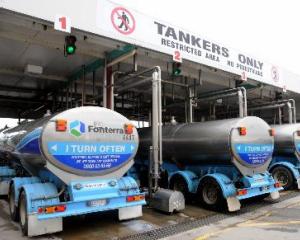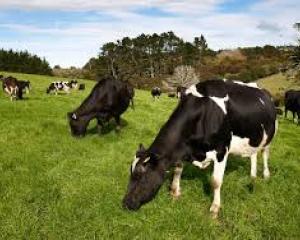The false alarm over Fonterra's botulism scare in some of its whey concentrate product has resulted in a relieved food industry but prompted questions about how testing could have failed on such an epic scale.
Opposition parties say questions need to be asked into how the "fiasco" was allowed to develop and Fonterra has confirmed it will conduct internal reviews into the issue.
The Ministry for Primary Industries said yesterday that the bacteria found in some of Fonterra's whey concentrate was not the botulism-causing Clostridium botulinum, but Clostridium sporogenes, which has no safety issues.
The false results, on tests done by Crown-owned AgResearch this month, has dented the country's food safety reputation and cost exporters millions of dollars in lost revenue.
After the contamination scare, China temporarily suspended imports of Fonterra whey powder and dairy base powder, while Russia, Kazakhstan and Belarus banned Fonterra products until at least the end of the year.
Infant Formula Exporters Association chief administrative officer Chris Claridge said he had been dismayed and disturbed about the way the scare was handled.
New Zealand needed a more co-ordinated and coherent approach to food scares, he said.
"I've lost a million dollars worth of trade and I'm a small and medium-sized exporter."
One of the companies hit hardest by the scare, Nutricia, which had some baby formula products recalled, said the latest results had mirrored its own testing that its product was free of Clostridium botulinum.
The company's legal team based at its head office in Amsterdam would discuss the issue, a spokeswoman said.
Labour primary industries spokesman Damien O'Connor called the results a "complete systems failure by the Ministry for Primary Industries".
Greens co-leader Russel Norman said the ministry and Fonterra both needed to take an extremely hard look at how the "fiasco" had developed.
Additional testing commissioned by the ministry of the original samples tested by AgResearch led to Fonterra and the ministry initiating the precautionary recall on August 2.
The latest independent research involved a total of 195 tests in the United States and New Zealand, with results arriving overnight yesterday.
The ministry's acting director-general, Scott Gallacher, said it needed to act on what it knew at that time. "The information we had then said there was a food safety risk to consumers and we moved quickly to address it," he said.
Fonterra chief executive Theo Spierings said the co-operative had done the right thing with the recall and would do the same again, if confronted by similar circumstances.
"I believe that we ... made the right calls all the way through this," he told a news conference. "Of course it was not an easy product recall."
Spierings acknowledged there had been confusion and anxiety arising from the complexity of the precautionary recall, and apologised for it.
Food and Grocery Council chief executive Katherine Rich said the news that there was no botulism risk from the Fonterra batches of whey would come as a huge relief to consumers around world, as well as to the company and the food industry. While some people would ask whether the precautionary recalls were a waste of time, she said, the answer was no.
"From a food industry perspective Fonterra did exactly the right thing - they put public safety first."
Primary Industries Minister Nathan Guy said the all-clear and the tracing report would go a long way to reassure international markets.
However, he said, there were still unanswered questions about the scare and how it was handled. - additional reporting: Rebecca Quilliam
- Jamie Gray and Adam Bennett






